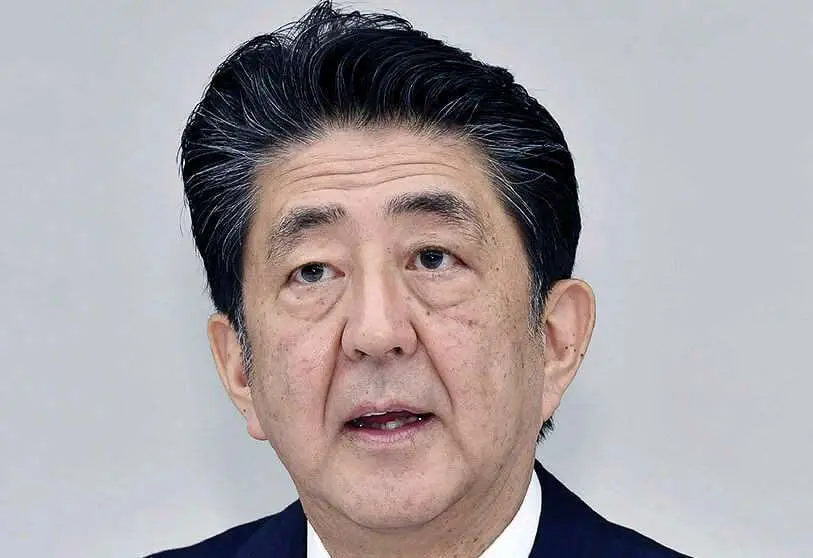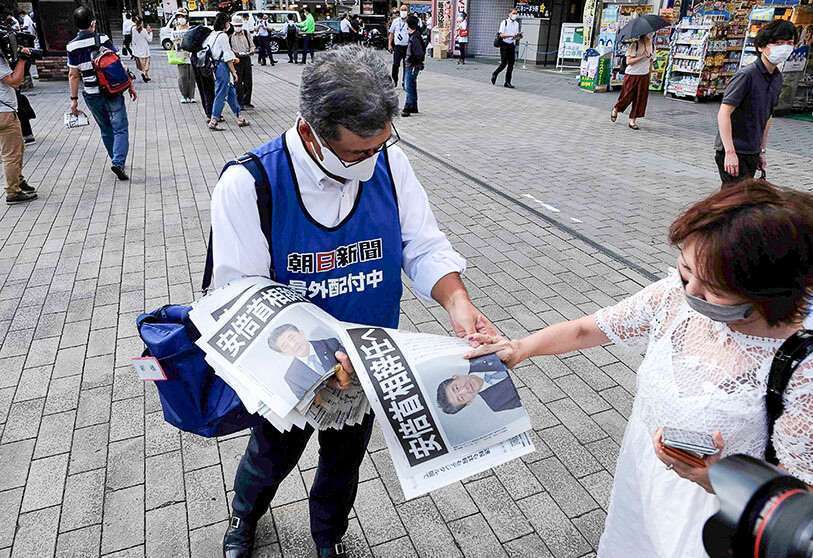Japan's Prime Minister resigns due to health

Shinzo Abe, the Prime Minister of Japan, has confirmed his resignation due to his worsening health condition as he understood that this could affect national politics. "My health conditions are not perfect. Poor health can lead to wrong political decisions (...). I have decided to resign as Prime Minister," Abe said at a press conference.
Abe, 65, noted that the chronic ulcerative colitis that forced him to resign in his first term (2006-2007) has recently returned, and the treatment he must receive requires continuous and vigilant review. "For eight years I have been able to manage my disease well, and have been able to devote myself entirely to my duties as prime minister," he added. However, last July he had a regular check-up and signs were found that the disease was returning, and he has since started treatment with a new drug. "Since last month my health has deteriorated, and I have lost a lot of strength (...). The new drug they are giving me requires continuous and close monitoring," he explained.
Doubts grew after Shinzo Abe made several visits to a Tokyo hospital allegedly for health problems.
Abe's term as leader of the ruling party and head of government ended in September 2021. The information was also confirmed to the local Kyodo agency by sources from the ruling Liberal Democratic Party (LDP). "The resignation is a fact," a source close to a senior official of Abe's Liberal Democratic Party said.
The Japanese prime minister visited a hospital on the 17th and 24th of this month for medical check-ups, but his spokesmen insisted that there were no serious complications and said his health was good.
The Japanese media, however, recalled that Abe's first term as prime minister, from 2006 to 2007, ended due to health complications from chronic ulcerative colitis that he was then suffering from. Abe's resignation will trigger a race for the leadership of the LDP, the winner of which must be formally elected in Parliament.

Meanwhile, the announcement of Shinzo Abe's departure has caused the Tokyo Stock Exchange to fall by up to 3%. Although the currency of the yen is moving upwards.
The Conservative Abe returned as prime minister for a second term in December 2012, with the mission of reactivating economic growth through a programme that combined a very lax monetary policy, fiscal expenditure and reforms.
On Monday, Abe broke the record for the longest consecutive tenure as prime minister set by his great-uncle Eisaku Sato half a century ago.
On the other hand, he was criticised for his handling of the coronavirus pandemic and the scandals of several members of the party. All of which led to a drop in his popularity rating to one of the lowest levels in his nearly eight years in office. Abe was criticised for a dubious response in the early days of the epidemic and for lack of leadership as contagion spread.
In the second quarter, Japan was hit by the deepest economic downturn on record, as the pandemic emptied shopping malls and hit demand for cars and other exports hard, reinforcing the need for bolder policy measures to avert a deeper crisis.








